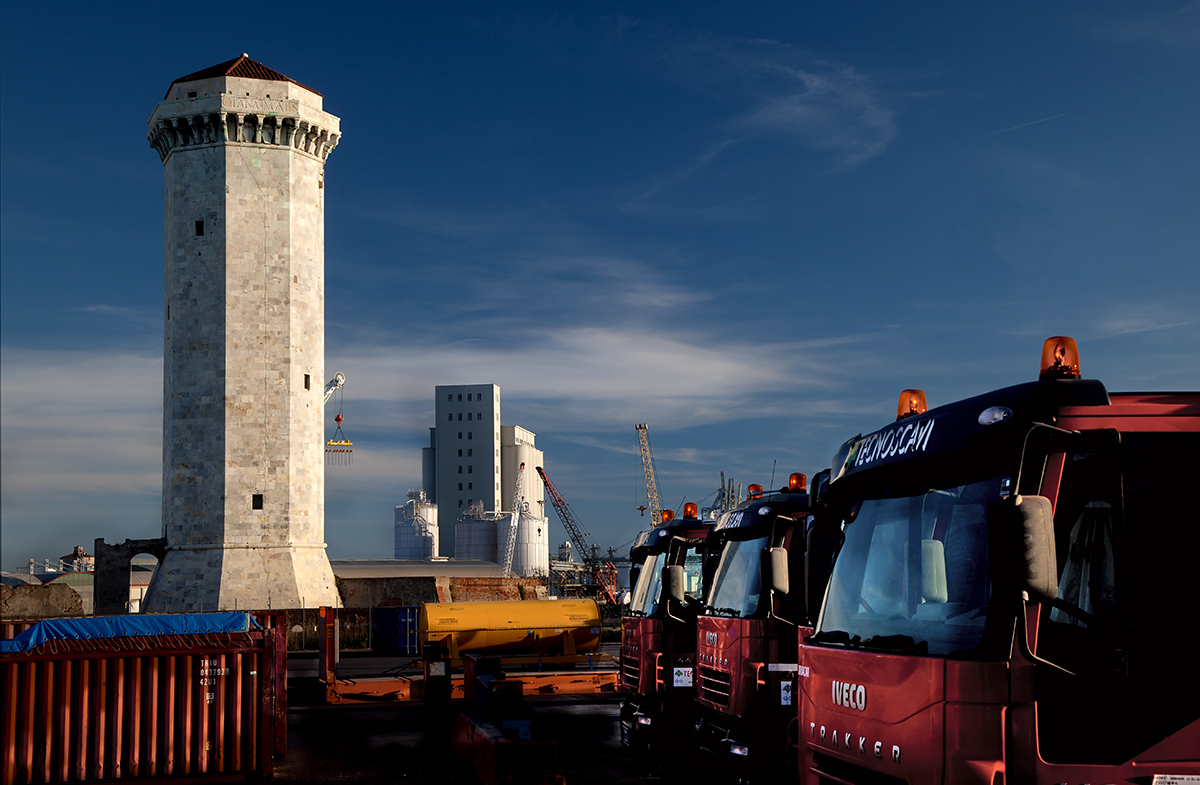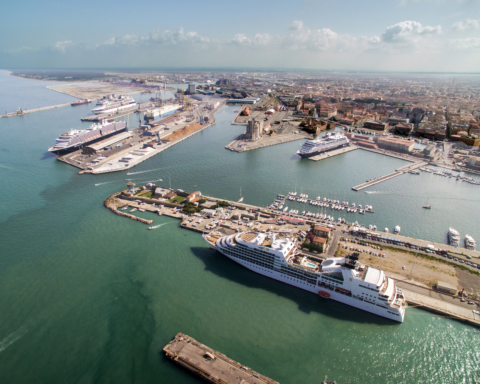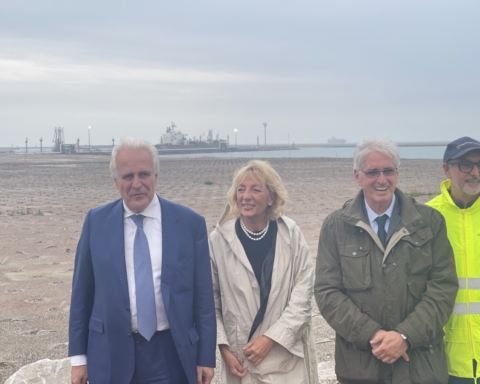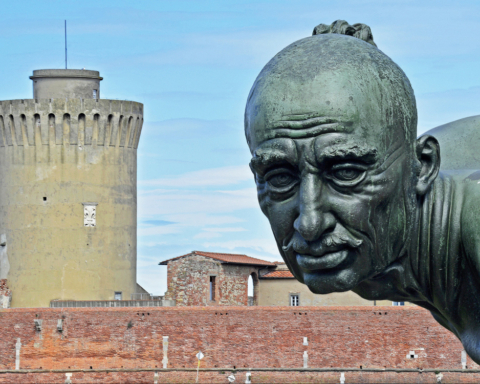The North Tyrrhenian Port Network Authority has closed a very positive 2021 with the approval of the final balance and the annual report on the activities it carried out.
These are two of the items on the agenda for today’s Management Committee meeting. During the meeting, the Strategic Network Planning Document was also passed. The Document is the main tool for defining port and logistics development objectives that, by law, must be reviewed by the Executive Body at the Port Authority’s headquarters in Palazzo Rosciano before being approved by the Ministry of Infrastructure, at the Port Network Authorities’ Coordination Conference.
Final balance statement
The end-of-year statement, presented by senior administrative executive, Simone Gagliani, shows a well-balanced accounting framework and a major commitment to infrastructure investments.
After the economic difficulties in 2020 – when about 30 million euros were invested in modernizing ports – In 2021 the Port Network Authority allocated over 436 million euros for pursuing its strategic objectives, essentially for the commitments made for the Darsena Europa seaward expansion project (415 million euros).
Current revenues amounted to 38 million euros, up 3.1% on 2020. During the year, the Port Network Authority collected 21 million euros in port taxes and anchorage fees, almost 800 thousand euros less compared to the previous year, mainly due to the effects of the Covid health emergency.
Thanks mainly to the allocation of funding for completing the Darsena Europa infrastructure, capital account revenues also registered a substantial increase from 13 to 453 million euros compared with 2020.
The surplus for the period amounts to 25.7 million euros. Finally, the income statement for the year shows a net profit of 6.6 million euros.
The annual report
In its Annual Report, the Port Network Authority detailed the activities it carried out last year. The most important results include the approval of the Three-Year Port Authority Operational Plan for the 2021-2023 period and the adoption of the Network’s Energy and Environmental Planning Document, which defined the strategies to be adopted in terms of environmental sustainability. Moreover, the adoption of the Port Workforce Organization Plan was fundamental, as it allowed the Authority to monitor the employment needs in the Network ports, highlighting the criticalities of the port work organization models.
“2021 has certainly been an important year for the Port Network Authority,” said Managing Director Matteo Paroli. “Numerous results have been achieved. All of them have contributed to redefining, on a more articulate programmatic basis, the sphere of action of an organization that has, among its priority objectives, developing the competitiveness of the ports under its jurisdiction and safeguarding employment,” he added.
Mr Paroli pointed out that, in terms of human resources, 17 people were taken on in 2021. Total staff salary costs, 11 million euros, amounted to around 33% of the capital expenditure incurred by the Authority. This percentage is substantially lower than the national average, which, in the public sector, is around 50%.
Moreover, the managing director also stressed that over the past year 27 concessions issued under art. 18 have been extended in Livorno. In addition, 18 authorizations for carrying out port operations and 11 for carrying out port services issued under art.16 of the Port Reform Law have been extended. In the Port of Piombino 3 authorizations for port operations and 4 authorizations for port services were extended.
The Strategic Network Planning Document (DPSS)
During the meeting, the new Strategic Network Planning Document was finally approved. The Document redefines, for each port in the network, the areas allocated strictly for port activities, the port/city interface areas and the last mile road and rail connections.
In particular, as far as Livorno is concerned, the planning instrument has moderately widened the perimeter of the port area, incorporating the manufacturing areas closely linked to the port, taking the port hinterland into account. It now includes, for instance, the areas near the overflow canal, up to its intersection with the railway line, and, as port hinterland areas, both Via Leonardo da Vinci and Via Salvatore Orlando.
As far as last-mile connections are concerned, 14 development measures have been established. Strategic objectives include designing a more linear and efficient Fi-PI-Li highway link-up with the Darsena Toscana port area; the rationalization and separation of port traffic flows from urban ones (according to common Port Network Authority/Municipality guidelines) and setting up a single gate for the port (to be evaluated in relation to the overall reorganization of the terminal gates and the extra-urban port road network).
The DPSS identifies the port-city interfaces, in view of including areas that are more suited to integrated logistics and therefore more functional to the development of the future Special Logistics Zone.
As far as Piombino is concerned, the Planning Document proposes a substantial enlargement of the port area, favouring the inclusion of manufacturing areas which are currently not taken into consideration, but which should be part of the working port. They include the old blast furnace area, the ex-Irfid areas (which are less than 1km away from the piers) and the Poggio Batteria area currently used as a parking lot. Moreover, the document proposes including the Tor di Sale marina and the areas to the west of it in the new port layout . It also recommends individuating a strategic rail corridor of public interest from Terre rosse to the junction with Fiorentina railway station.
Finally, the DPSS re-defines the infrastructural corridors linking port nodes to the major networks. The definition of the project for a new rail link for goods and passengers and the development of the connection between the lengthening of the SS398 highway and the gates to port operational areas are considered of strategic importance.
Likewise, the document identifies and promotes strategic actions for developing the ports of Elba and Capraia islands.
Translation by Giles Foster




